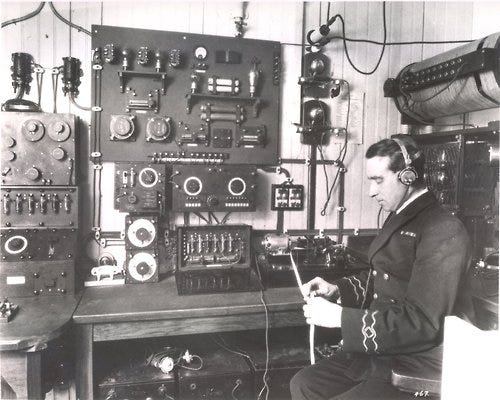The Wireless First World War: A Series
An annotated link post
Before radio technology was invented, an extensive military intelligence bureaucracy had already become the norm in European land armies. This was a new phenomenon in the world, one with social and political implications that became visible in the most infamous miscarriage of justice at the turn of the century.
Because these institutions pre-existed radi…




